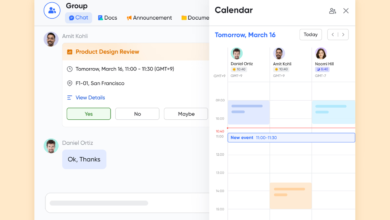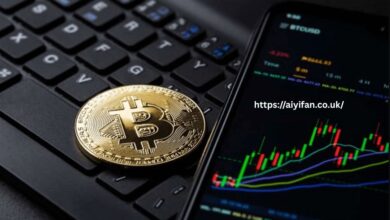
Inflation has become a prominent factor affecting various aspects of personal finances, and car financing is no exception. One notable challenge is finding ways to manage expenses with options like no deposit car finance, especially during periods of economic uncertainty. Understanding how inflation impacts car loans is crucial for making informed financial decisions, regardless of your credit history.
Understanding Inflation and Its Effects on Car Financing
Inflation refers to the general rise in prices over time, reducing the purchasing power of money. For borrowers, this means higher costs for goods, services, and borrowing. In the context of car loans, inflation often leads to increased interest rates, making financing more expensive. Central banks, such as the Federal Reserve, combat inflation by adjusting benchmark rates. When rates rise, lenders pass on these costs to consumers through higher car loan rates.
These macroeconomic adjustments impact all borrowers, regardless of their creditworthiness. Even those with excellent credit scores may face elevated interest rates due to broader economic conditions.
The Role of Interest Rates in Car Financing During Inflation
Why Interest Rates Increase During Inflation
Lenders adjust interest rates to offset the diminishing value of money caused by inflation. As prices rise, financial institutions raise rates to maintain their profit margins. Borrowers, in turn, experience higher monthly payments. This adjustment impacts all loan types, including car financing, by reducing affordability.
Fixed vs. Variable Interest Rates
Car loans typically offer fixed or variable interest rates. Fixed-rate loans provide consistent monthly payments, which can be beneficial during periods of high inflation. However, these rates may lock in higher costs upfront. Conversely, variable-rate loans may start with lower rates but carry the risk of rising payments as inflation increases. Borrowers must weigh these options carefully to align with their financial goals.
Impact of Inflation on Borrower Affordability
Rising Vehicle Prices and Loan Balances
Inflation doesn’t just affect loan interest rates—it also drives up vehicle prices. Manufacturers and dealers often adjust prices to reflect increased production costs, leading to higher loan balances. For borrowers, this double burden of elevated sticker prices and higher interest rates can significantly impact monthly payments.
Financial Strain on Borrowers
Higher living costs during inflation leave less room in personal budgets for loan repayments. Borrowers may struggle to balance car loan payments with other financial obligations, increasing the risk of default or delayed payments. This strain is particularly pronounced for those with limited financial flexibility or existing debt.
Strategies for Navigating Car Financing During Inflation
Shopping Around for Better Rates
Borrowers can mitigate the impact of inflation by comparing loan offers from multiple lenders. Rates, terms, and fees vary significantly, so researching options can lead to more favorable terms. Preapproval is another effective strategy to secure competitive rates before heading to the dealership.
Considering Used or Electric Vehicles
Purchasing a used car can help lower overall costs, as these vehicles often have smaller loan requirements. Electric vehicles (EVs) provide additional savings through tax credits and reduced operational expenses, offsetting higher upfront costs. Borrowers should explore these alternatives to optimize affordability.
Leveraging Financial Tools and Calculators
Online calculators are valuable for estimating monthly payments and understanding the total cost of car loans. By inputting variables like loan amount, interest rate, and term length, borrowers can plan budgets effectively and avoid overextending themselves.
Unique Considerations for Different Borrower Profiles
Borrowers with Good Credit History
Those with excellent credit scores have a distinct advantage when securing loans during inflation. They can often negotiate lower rates and benefit from fixed-rate options to avoid future rate hikes. Preapproval further strengthens their position by providing clarity on loan terms.
Borrowers with No Credit History
First-time borrowers may face challenges due to a lack of credit history. Building credit through small, manageable loans or using a co-signer can help secure better terms. Patience and strategic planning are essential for establishing a favorable credit profile.
Borrowers with Bad Credit
Borrowers with less-than-perfect credit may encounter significantly higher rates. Improving credit scores through timely payments and reducing debt is critical for accessing better financing options. Exploring lenders that specialize in subprime loans can also provide viable alternatives.
Refinancing Car Loans After Inflation Stabilizes
Once inflation subsides and interest rates decrease, refinancing becomes a valuable option for borrowers. Steps include evaluating the current loan’s terms, checking credit scores, and shopping around for better rates. Refinancing can lead to lower monthly payments and reduced overall loan costs, offering relief from earlier financial strain.
Conclusion: Navigating Inflation with Strategic Borrowing
Inflation’s impact on car loans highlights the importance of financial literacy and proactive planning. By understanding how inflation influences interest rates and affordability, borrowers can make informed decisions that align with their financial goals. Whether through strategic shopping, exploring alternative vehicles, or refinancing, navigating these challenges requires adaptability and foresight. With the right approach, securing car financing during inflation is achievable for borrowers across all credit profiles.





